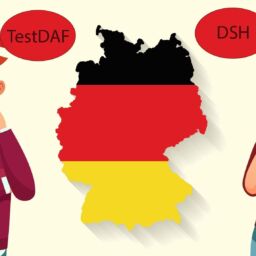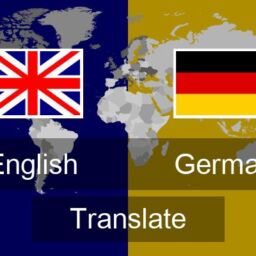German Language - Few facts
- 130 million people speak German as their first language or as a second language
Approximately 130 million people speak German as their mother language, or as a second language. German is that the most generally spoken mother language within the EU and is a political candidate language in 7 countries.
- German words have three genders
In many Romance languages, nouns are either masculine or feminine, which has historically caused headaches for a few language learners. German is even more complicated because it contains a third gender called neuter for words that are neither masculine nor feminine.
- Time is counted with regard to the upcoming hour
In German if someone tells you that it’s halb drei (“half three”), you would possibly assume that it’s 3:30. However, this can be wrong because in German you report time by counting the minutes to the subsequent hour, so “half three” means it’s half an hour until three: in other words, it’s 2:30.
- English and German share 60% of their vocabulary
Due to their close relation, German and English share quite 1/2 their vocabulary! as compared, English and French share just 27% of their vocabulary.
- The Gutenberg Bible
The Gutenberg Bible was the first-ever printed book by movable type and it had been written in German by Gutenberg in 1454.
- Words that exist only in German
Some German words don’t have the same in other languages. as an example, “fremdschämen” refers to shame felt on another person’s behalf. And “Fernweh” (having the travel bug, lusting after adventure) is that the opposite of “Heimweh (homesickness).
- All nouns are capitalised
In English, only proper nouns like people’s names and also the names of states and cities are capitalised. In German, every single noun is capitalised.
- German encompasses a unique letter
The German alphabet contains an additional consonant, ß, called “Eszett” representing the double-S. ß is exclusive among German consonants in this it’s never found at the start of a word and it’s not always interchangeable with the SS, for instance, the German word masse and maße mean two different words (weight and size).
- Some German speakers have trouble understanding each other
Standard “textbook” German is what you’d hear spoken within the north-central area of Germany like Hamburg. this is often where they speak the language that the majority closely follows the grammar and pronunciation rules taught in schools and most international German courses. But that’s not the dialect that every one German speakers use, and a few of them can even have difficulty understanding each other. for several German speakers, the dialect that’s most difficult to grasp pronunciation-wise is in Bavaria. it’s been said that when Bavarian movies are shown within the north or in other German-speaking countries, they’re often shown with subtitles!
Source: https://www.languageinsight.com














